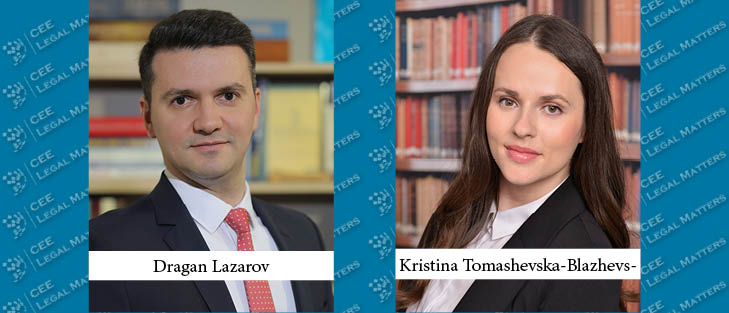The spring of 2024 marked a pivotal shift in the Macedonian financial market, with significant reforms on the horizon. As of March 2024, the related legislative framework has come under intense scrutiny, aiming to align more closely with European directives and capital market regulations. This effort has culminated in the adoption of the new Law on Financial Instruments (LFI) and the Law on Prospectus and Transparency Obligations of Securities Issuers (LPTOSI). The primary objective of these reforms is to enhance market efficiency and strengthen the stability of the financial system.
The core novelty under the LFI is that all financial instruments, which were up until now available solely to investors on international markets, would become available on the domestic market as well. The issuance of permits and authorizations for investment companies (brokerage houses) will be regulated in accordance with EU standards. Applied more broadly, such standards will also govern the regulation of activities and the organizational structure of relevant service providers, along with the introduction of a risk-based approach that will be adopted toward determining capital requirements for investment companies and other affected entities. Within the scope of this reform, the LFI defines an investment company as a legal entity whose principal activity is to provide one or more investment services to third parties and/or to engage in one or more investment activities on a professional basis.
The LFI also defines the method and conditions for establishing investment companies and their subsidiaries, stipulating that the initial capital must be at least MKD 44.8 million (approximately EUR 728,456). It introduces new regulated markets, specifically trading platforms designed to facilitate the trading of financial instruments on other regulated venues, including multilateral trading platforms (MTPs), organized trading platforms (OTPs), and MTPs registered as SME growth markets. Furthermore, the law implements extensive measures, with greater precision, to detect and prevent market abuse, uphold market integrity, assign responsibility, and ensure greater legal certainty within the capital market.
High-quality information, including annual and semi-annual financial reports, is intended to ensure an appropriate level of transparency for issuers of financial instruments. Alongside these, other measures, such as the disclosure of dominant holders, aim to standardize, enhance relevance, and improve the comparability of market information, benefiting all associated parties regardless of their level of involvement.
The LFI facilitates the establishment of three new entities in the capital market: the OMO (Authorized Publication Mechanism), the DCP (Consolidated Data Provider), and the OMI (Authorized Investment Mechanism). These entities will be licensed to collect data on executed trades within the capital market, gathering information from regulated markets and the investment companies involved.
The Securities Commission’s authorizations have been enhanced, allowing it to fulfill its expanded responsibilities related to the introduction of new services, financial instruments, capital requirements, and the regulation of market behavior by capital market participants.
Although an active market for derivative financial instruments – such as futures, options, and emission quotas – does not yet exist domestically, investors in North Macedonia will now be able to invest in derivatives created and traded abroad. This development underscores the need for and supports the creation of capital market infrastructure in North Macedonia that aligns with that of EU member states. The newly established infrastructure, under the new laws, consists of investment companies (brokerage houses), trading data providers, the market operator (stock exchange), and other regulated venues such as the Trading Platform (TTP), Organized Trading Platform (OTP), the Central Securities Depository, and the Investor Compensation Fund.
Although the new law will take effect in September 2025, stakeholders are required to adopt specific bylaws, which are still in the preparatory phase. The Capital Market Supervision Commission plays a central role, given its authority and expertise, in adopting most of the acts under the LFI, ranging from rulebooks on the operations of investment companies to the rules governing the content, format, and deadlines for the submission of annual financial reports and company reports. We can expect further alignment as the new legal framework is fully implemented before September of next year, ensuring compliance by all relevant parties. The successful implementation of these reforms is expected to modernize the capital market, attract foreign investors, and foster greater integration with the European Union’s financial systems, thereby enhancing the overall competitiveness and resilience of North Macedonia’s financial sector.
By Dragan Lazarov, Partner, and Kristina Tomashevska-Blazhevska, Attorney, Law Office Lazarov
This article was originally published in Issue 11.10 of the CEE Legal Matters Magazine. If you would like to receive a hard copy of the magazine, you can subscribe here.

















